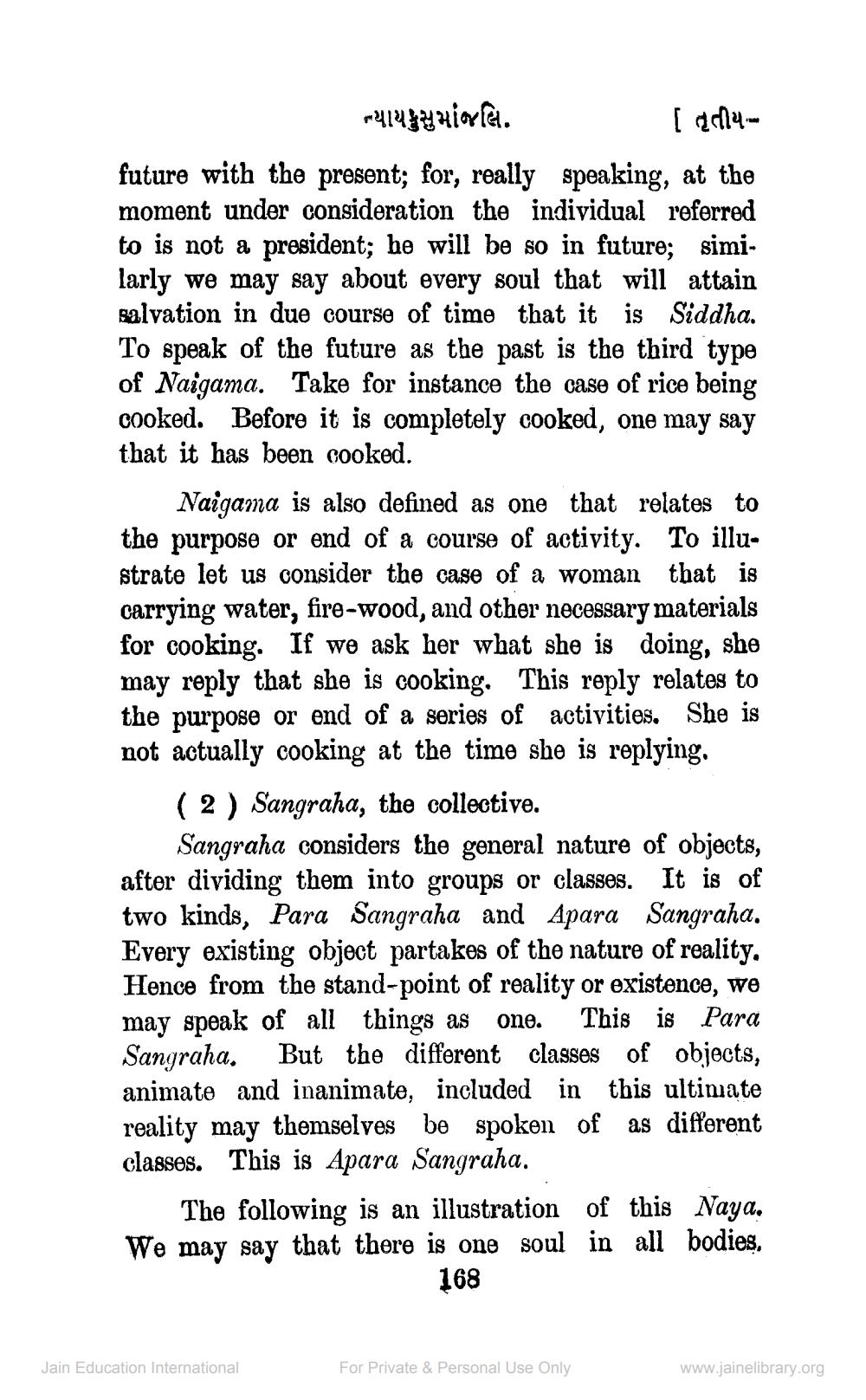________________
ન્યાયકુસુમાંજલિ.
[adyfuture with the present; for, really speaking, at the moment under consideration the individual referred to is not a president; he will be so in future; similarly we may say about every soul that will attain salvation in due course of time that it is Siddha. To speak of the future as the past is the third type of Naigama. Take for instance the case of rice being cooked. Before it is completely cooked, one may say that it has been cooked.
Naigama is also defined as one that relates to the purpose or end of a course of activity. To illustrate let us consider the case of a woman that is carrying water, fire-wood, and other necessary materials for cooking. If we ask her what she is doing, she may reply that she is cooking. This reply relates to the purpose or end of a series of activities. She is not actually cooking at the time she is replying.
( 2 ) Sangraha, the collective.
Sangraha considers the general nature of objects, after dividing them into groups or classes. It is of two kinds, Para Sangraha and Apara Sangraha. Every existing object partakes of the nature of reality, Hence from the stand-point of reality or existence, we may speak of all things as one. This is Para Sangraha. But the different classes of objects, animate and inanimate, included in this ultimate reality may themselves be spoken of as different classes. This is Apara Sangraha.
The following is an illustration of this Naya. We may say that there is one soul in all bodies,
168
Jain Education International
For Private & Personal Use Only
www.jainelibrary.org




